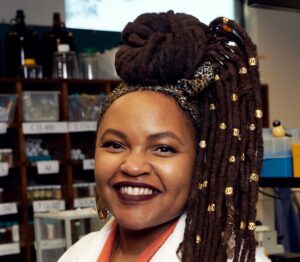2022-23 Scholars:
Anicca Harriot
 Biography
Biography
Anicca Harriot (she/her) is a postdoctoral fellow whose work focuses on developing 3D engineered muscular tissues (EMTs) to enable a “clinical trial-on-a-chip” platform modeling cardiac and skeletal muscle deficiencies in muscular dystrophy, aging, and spaceflight and test the efficacy of novel therapeutics. To date, her major research findings suggest that while previously published reports show altered function of DMD engineered muscle when compared to wild-type, this is driven by an immature phenotype in DMD tissues rather than the disease-altered contractile mechanism. Anicca earned her PhD in Biochemistry & Molecular Biology at the University of Maryland, School of Medicine under the mentorship of Dr. Christopher W. Ward. Her dissertation elucidated the cytoskeletal modifications that drive structural alterations in skeletal muscle in aging and dystrophy that contribute to sarcopenia and increased injury susceptibility. She continues her research as a post-doctoral scholar in the Kim Lab.
During the Spring 2024 semester, she served as a guest lecturer/teaching assistant in the Cell Biology (BIOL 106) course at Coppin State University. She taught four modules over the course of the semester and developed the lecture materials including in-class activities, and was also responsible for pre-exam review lectures of each module and held office hours with students.
Outside of the lab, Anicca is a fierce advocate for equity in STEM education. She currently serves as the Acting CEO for #VanguardSTEM: Conversations for Women of Color in STEM, a non-profit dedicated to lifting the voices of women and non-binary people of color in STEM. Through #VanguardSTEM, Anicca is able to deploy her passion for advocacy and science communication alongside other women of color & non-binary people of color in STEM to self-advocate by fully representing themselves and their STEM identities and interests, without assimilation. Her work with VanguardSTEM has been featured in the National Academies of Sciences, Engineering, and Medicine report on The Science of Effective Mentorship in STEM, the Aspen Institute’s 2023 report on Advancing LGBTQ+ People in STEM Careers, and at the United Nations International Day of Women and Girls in Science in 2020. In addition to various podcast guest appearances and news publications, Anicca’s passion for advocacy and prominent influence as a science communicator has also led her to being recognized as one of Motherboard’s 2017 Humans of the Year, a 2017 Young Futurist for The Root, and as a 2020 President’s Fellow at the University of Maryland, Baltimore.
Faculty Mentors
Research:
Deok-Ho Kim, PhD
Department of Biomedical Engineering, School of Medicine Cardiovascular Systems
Contact Twitter: @13adh13, Instagram: @13adh13
Itzy Morales Pantoja
 Biography
Biography
Itzy Morales Pantoja is a postdoctoral fellow at the Center for Alternatives to Animal Testing, at Johns Hopkins University. Her goal is to improve human in-vitro models to better recapitulate in-vivo like physiology for the study of neurological diseases. Pioneering research at her lab is adapting brain organoids to study learning and memory. Her postdoctoral research focuses on creating and implementing a MEA-microfluidic system to increase the mass and complexity of brain organoids to study distinctive electrophysiological signatures that separate normal from pathological in organoids derived from Alzheimer’s disease patients.
Dr. Morales Pantoja received her PhD in Cellular and Molecular Medicine from Johns Hopkins School of Medicine in July 2020. During her doctoral research Dr. Morales Pantoja studied the ability of stem cells from multiple sclerosis patients with varying degrees of disability to become myelin producing cells under homeostasis and inflammatory conditions. The results of her research revealed that a chronic low-grade inflammatory environment significantly impaired the development of myelin producing cells and may have profound effects on the efficacy of regenerative therapies. This work highlights the importance of evaluating both cytoprotective and remyelination-promoting agents in the context of an inflammatory microenvironment that may influence myelin repair in people with multiple sclerosis.
She taught for 2 semesters at Coppin State University in the Organic Chemistry Lab where she redesigned the lab manuals and some of the lab experiments and activities. She continues her research as a post-doctoral scholar in the Smirnova Lab.
Faculty Mentors
Research:
Thomas Hartung, PhD, and Lena Smirnova, PhD
Department of Environmental Health and Engineering, School of Public Health/Whiting School of Engineering
David Gracias, PhD
Department of Chemical and Biomolecular Engineering, Whiting School of Engineering
Contact imorale4@jhmi.edu
2021-22 Scholars:
Jamie Hernandez
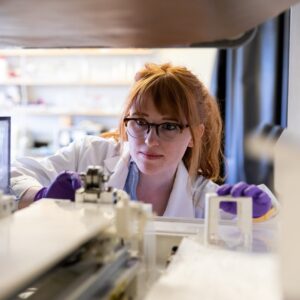 Biography
Biography
Jamie Hernandez earned her B.S. in Biomedical Engineering at the University of Arizona in her hometown Tucson, Arizona. She then went on to pursue her Ph.D. in Bioengineering at the University of Washington where she was advised by Dr. Kim Woodrow. Her thesis research focused on developing drug delivery systems, like long-acting implants in application to low-cost HIV prevention, using a material fabrication method called electrospinning. Through this research, she became especially interested in how the body interacts with medical devices. As an ASPIRE fellow at Johns Hopkins University, she is working in Dr. Joshua Doloff’s lab, researching the immune response within various fibrotic diseases, such as cirrhosis. She is also engineering novel crystalline therapeutics for disease prevention. Jamie is also passionate about making research opportunities more accessible, so throughout her Ph.D., she worked with teams of undergraduate students on various global health forced projects as a part of the University of Washington club Bioengineers without Borders. This experience, as well as her participation in teaching a lab course, built her interest in teaching as a career.
She participated in teaching Calculus I at Coppin State University, shadowing the course and developping supplementary curriculum (lectures and extra credit assignments) demonstrating real-life applications of basic calculus concepts in biomedical engineering research. While working with a teaching mentor at Coppin State University, she wrote an extra credit curriculum (including 3 lectures and assignments) on real-life applications of calculus concepts from the field of biomedical engineering and will present research on STEM pedagogy a the BMES 2024 Meeting. She continuesd her research as a post-doctoral scholar in the Doloff Lab.
Dr. Hernandez will start in a scientist role at the University of Wisconsin-Madison in summer 2025. She will be working on stem cell therapies to treat cardiovascular diseases in a cardiology lab.
Faculty Mentors
Research:
Joshua C. Doloff, PhD
Department of Biomedical Engineering, School of Medicine Cell and Tissue Engineering
Contact jherna75@jhu.edu
Brandie Morris Verdone
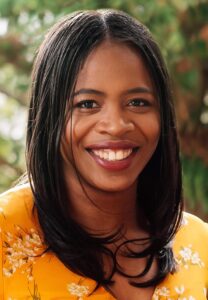 Biography
Biography
Brandie Morris Verdone, PhD, earned her BS in Neuroscience from Johns Hopkins University with a concentration in systems neuroscience. While at Hopkins, she worked in the laboratory of Solange Brown, MD PhD, studying the patterns of motor neuron degeneration in mouse models of Amyotrophic Lateral Sclerosis (ALS). She went on to complete her PhD in Neuroscience at Thomas Jefferson University under the mentorship of Piera Pasinelli, PhD. There she was able to combine her systems neuroscience background with the cellular and molecular focus of her graduate school research, which assessed the mechanisms of aberrant protein toxicity in a novel ALS-related mouse model. Realizing that she knew much about aspects of movement deficits in a diseased state, she became curious about the extra-motor components of proper movement; in other words, what are the factors beyond the corticospinal tract that allow us to successfully move through a space—what is movement done right? This led her to the laboratory of Kathleen Cullen, PhD for her postdoctoral fellowship. There, she is using mouse models to study the visual and vestibular components required for proper navigation through a space. As part of her IRACDA Fellowship, she served as adjunct faculty and instructor of record for the Principles of Neuroscience course at Morgan State University. She has also assisted in courses including Neural Systems and Behavior and Biology of the Inner Ear at the Marine Biological Laboratory in Woods Hole, MA. While working in these capacities, Brandie has been able to practice science communication in everyday life. Her goal in everything is to make people as excited about neuroscience as she is, as she believes there is no point to what we do if we can’t translate it to those around us. Brandie has been the recipient of numerous funding awards including the Neural Control of Movement Scholarship, The Fredric Rieders Family Foundation Graduate Student Recognition Award, The Professor Fredric Rieders, PhD Scholarship, a Trainee Professional Development Award from the Society for Neuroscience and a Neural Control of Movement Scholarship.
She continues her research as a post-doctoral scholar in the Cullen Lab.
Faculty Mentors
Research:
Kathleen Cullen, PhD
Department of Biomedical Engineering, School of Medicine Systems Neuroscience
Twitter: @BrandieVerdone
2020-21 Scholars:
Daniel Dorman
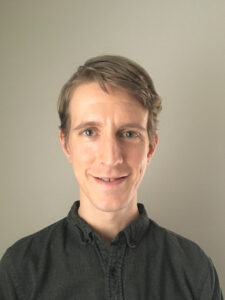 Biography
Biography
Daniel Dorman conducts research into computational neuroscience and decision-making in the Neuromedical Control Systems Lab in the Institute for Computational Medicine under the mentorship of Dr. Sridevi Sarma. His research involves modeling and analysis of human intracranial and scalp EEG data and behavioral data during decision making. As an ASIPRE scholar, he also has taught Neuroscience and Human Anatomy and Physiology II at Coppin State University under the mentorship of Dr. Kavita Hegde.
Prior to joining the ASPIRE program, Daniel completed his PhD in Neuroscience at George Mason University under the mentorship of Dr. Avrama Blackwell. His PhD work focused on computational modeling of individual neurons to advance understanding of learning and synaptic plasticity mechanisms.
He completed his B.S. in Biomedical Engineering from LeTourneau University and gained professional research experience as a Biomedical Engineer for the U.S. Army Aeromedical Research Lab prior to his PhD.
Daniel is passionate about advancing justice, equity, diversity, and inclusion in STEM and actively mentors students in his role as a postdoctoral fellow. He taught for 3 semesters at Coppin State University, including introductory biology classes and in neuroscience.
Dr. Dorman is currently serving as a Professor of Neuroscience in the Biology Department at Hope College.
Faculty Mentors
Research:
Sridevi Sarma, PhD
Institute for Computational Medicine, Department of Biomedical Engineering, School of Medicine Neurology
Clinical:
William S Anderson, MD PHD
Department of Neurological Surgery
Twitter @DanielDorman
Nzinga Mack
Biography
Nzinga Mack is a teacher, scientist and nature lover who was born and raised in Harlem, NY and graduated from Howard University with her Bachelor of Science in Biology and earned her PhD in Pharmacology from Florida A & M University. At FAMU her research focused on metabolism in triple negative breast cancer and colon cancer. Nzinga is honored to be a recipient of the highly competitive NIH Institutional Research and Academic Career Development Postdoctoral Award at Johns Hopkins University. Nzinga’s mission is to attack health disparities by continuing to research health disparities, and by training upcoming scientists in the field of health disparities. When Nzinga is not working, she can be found gardening, raising butterflies, and enjoying nature. Nzinga’s doctoral research focused on the Warburg effect, the propensity for many types of cancer cells to preferentially utilize glycolysis over oxidative phosporylation as a source of energy. The research explored the metabolic effects of lactate dehydrogenase knockdown in triple negative breast cancer and colon cancer with regards to lactic acid production, ATP production, glucose consumption, and differentially expressed genes.
In Spring 2024 she shadowed a Morgan State biology teacher and delivered several lectures she designed for this course. She is currently serving as a Lecturer of undergraduates at JHU while continuing her research as a post-doctoral scholar in the Spangler Lab.
Faculty Mentors
Research:
Jamie Spangler, PhD
Biomedical Engineering and Chemical & Biomolecular Engineering, Whiting School of Engineering ChemBE
Feilim Mac Gabhann, PhD
Department of Biomedical Engineering, Whiting School of Engineering Institute for Computational Medicine
Contact nzinga.mack@jhu.edu Twitter @NzingaMack
2019 – 2020 Scholars:
Rebecca Keener
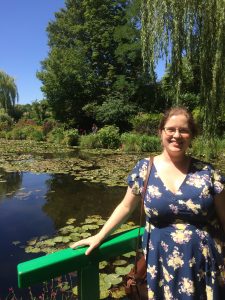 Biography
Biography
Dr. Rebecca Keener’s graduate work with Dr. Carol Greider has given her a foundation in molecular biology and genetics research. She will be combining her experience in genetics with computational approaches to study human genome variation as an ASPIRE fellow at Johns Hopkins University. Deciphering the consequence of variation is essential for understanding both fundamental biology and disease. Keener’s post-doctoral work with Dr. Alexis Battle and Dr. Rasika Mathias will give her the computational skills to address these questions and bring an interdisciplinary approach to her future lab.
During her graduate work, she sought out many different teaching experiences: She was a teaching assistant, a mentor to both graduate and undergraduate students in the lab, and a graduate of the Johns Hopkins Preparing Future Faculty Teaching Academy. In addition, she designed and taught a course for non-majors, Science in Hollywood, which was a Pass/Fail, winter semester course with 27 students. As part of a team, Keener created and implemented the EVOLVE platform which is an innovative online platform for delivering course content to prepare students for an active learning environment. EVOLVE was implemented in a graduate level genetics course for two years ago and it is still engaging students today.
In Spring 2022 semester, she taught BIOL454 Concepts in Computational Biology at Morgan State University which she redesigned. Dr. Keener is currently serving as a Associate Research Scientist in the Battle Lab at JHU.
Faculty Mentors
Research:
Alexis Battle, PhD
Department of Biomedical Engineering
Clinical:
Rasika Mathias, ScD
Department of Medicine
Contact rkeener@jhmi.edu Twitter @RebeccaKeener9
Elissa Leonard
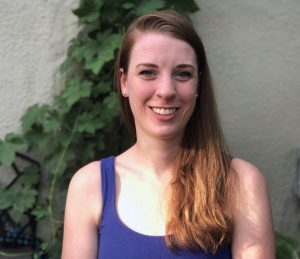 Biography
Biography
Dr. Elissa Leonard attended Harvey Mudd College, where she completed her BS in Biomolecular Systems and Design, and developed novel bioreactor designs for corneal tissue engineering with Dr. Elizabeth Orwin. She earned her PhD at the University of Texas at Austin, where her research focus shifted to engineering therapeutically relevant autoimmune T cell receptors under the supervision of Dr. Jennifer Maynard. Currently, Dr. Leonard is a Postdoctoral Fellow at Johns Hopkins University, where she has continued research in protein and immune engineering with Dr. Jamie Spangler. Currently, her work focuses on engineering antibody-cytokine fusion proteins that can shift the immune balance and promote anti-tumor or pathogen-clearing immune activity. She is also revisiting her regenerative engineering roots by engineering of growth hormones for applications in osteogenesis.
In the Fall of 2021 she co-instructed the Biol 310 course (Cell and Molecular Biology) at Morgan State, and adapted the curriculum to the new textbook that was chosen for that semester. She prepared slides and teaching material for the classes she instructed, and incorporated biomedical engineering content that she had intimate familiarity with from her own research, created exam questions and practice questions and selected review and primary research articles on topics related to those covered in class that students could read and write up summaries of for extra credit. Dr. Leonard is currently serving as a Senior Research Scientist in immuno-oncology at ModeX Therapeutics.
Faculty Mentors
Research:
Jamie Spangler, PhD
Department of Biomedical Engineering, Whiting School of Engineering ChemBE
Clinical:
Jonathan Schneck, PhD
Department of Oncology
Contact eleonar8@jhmi.edu
Rachel Smith
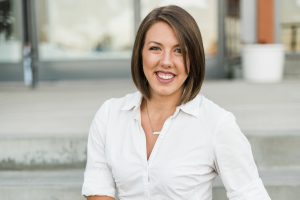 Biography
Biography
Dr. Rachel Smith earned her BS in Biomedical Engineering from the University of Tennessee, Knoxville in 2014 and her MS and PhD from the University of California, Irvine in 2019 in Biomedical Engineering. Her doctoral work focused on scalp EEG signals processing to predict treatment outcome in a form of pediatric epilepsy called infantile spasms. She used both simple metrics, such as EEG amplitude and power spectrum, alongside more targeted metrics of brain function, such as functional connectivity and long-range temporal correlation strength, to identify patients that may be at greater risk of failing the administered antiepileptic drug. Smith’s current work in Sri Sarma’s lab uses dynamical systems theory to model cortical stimulation in the human brain, a procedure that may help clinicians delineate the seizure onset zone in surgical candidates with medically refractory epilepsy. She has had past research experience in ECG signals processing in her undergraduate lab; arterial blood pressure waveform processing through an internship at Edwards Lifesciences; and graph theoretical analysis through an appointment at Oak Ridge National Laboratory.
Teaching: In addition to five quarters as a graduate TA, Smith pursued extensive pedagogical training during her time as a graduate student to prepare me for a career in higher education. She was one of two engineers selected for UCI’s Pedagogical Fellows Program, a year-long training program in evidence-based teaching practices, which culminated in leading the 1.5 day TA Professional Development Program for new graduate TAs. She gained certifications in Course Design, Teaching Excellence, and Mentoring Excellence, and she became a CIRTL Associate. Additionally, Smith sought opportunities to guest lecture, resulting in three undergraduate course lectures and one graduate course lecture. Her success in teaching was recognized by receiving the BME Graduate Student of the Year award two consecutive years, an award that is given solely through undergraduate nominations and votes. She also received the UCI Division of Teaching Excellence and Innovation’s Most Promising Future Faculty Award, a one-quarter fellowship given to two graduate students from a campus-wide pool of nominees with exemplary research, teaching, and service to the university. During her last year at UCI, she served as the Henry Samueli School of Engineering’s Pedagogical Fellow, in which she led a journal club investigating evidence-based teaching practices.
Dr. Smith taught as the Instructor of Record for an Engineering class at Morgan State University. She is currently serving as Assistant Professor in the Department of Electrical and Computer Engineering at the University of Alabama Birmingham where she runs the Neural Signal Processing and Modeling Lab.
Faculty Mentors
Research:
Sridevi Sarma, PhD
Institute for Computational Medicine, Department of Biomedical Engineering, School of Medicine Neurology
Clinical:
Joon-Yi Kang, MD
Department of Neurology
Contact rsmit249@jhu.edu
Allister Suarez
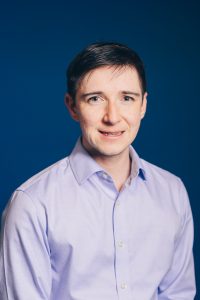 Biography
Biography
Dr. Allister Suarez’s research interests are interdisciplinary in the basic biomedical sciences. As a graduate student and postdoctoral fellow in Dr. Takanari Inoue’s lab in the Department of Cell Biology, his research was in synthetic cell biology. His thesis work focused on the interplay between biochemical signaling and membrane deformation in cell migration. Cell signaling could be modulated by rapidly perturbing cell morphology using a chemically inducible dimerization (CID) system with curvature-inducing proteins, as visualized by live cell imaging with fluorescence microscopy. To elucidate the novel role of plasma membrane deformation in the positive feedback loop that promotes PI(3,4,5)P3 production at the leading edge, his project employed synthetic biological techniques in concert with curvature-sensing and -inducing proteins of the Bin/Amphiphysin/Rvs (BAR) superfamily. This new molecular toolbox allows for exploration of biochemical signaling downstream of rapidly-induced nanometer-scale membrane deformation in living cells. When Allister completed his first year in the ASPIRE program, his research interests in fibrosis and the role of extracellular matrix structural cues in the organization of tissue architecture led him to transfer laboratories to provide him with expertise in mechanobiology. His research mentors are Dr. Deok-Ho Kim, Dept. of Biomedical Engineering and Dept. of Medicine at Johns Hopkins School of Medicine and Dr. Enid Neptune in the Dept. of Medicine at Johns Hopkins School of Medicine. Dr. Hany Sobhi, Dept. of Natural Sciences at Coppin State, continues to be his teaching mentor in organic chemistry. He created an IDP with Dr. Kim and Dr. Sobhi. He has been focusing on developing a new project in Dr. Kim and Dr. Neptune’s lab that focuses on both their expertise in mechanobiology and pulmonology, respectively. His new project is exploring the plasticity of lung fibroblasts in idiopathic pulmonary fibrosis by exploring the roles of extracellular matrix topography and cell stretching. His goal is to develop an in vitro model and identify novel signaling pathways guiding the cell fate of fibroblasts, lipofibroblasts, and myofibroblasts. Allister is planning to complete a first-author paper in the coming year detailing the in vitro model, transcriptomics analysis, and bioinformatics analysis of mechanobiological signaling pathways in fibroblasts in idiopathic pulmonary fibrosis. Additionally, he is planning to complete a first-author paper describing his teaching-as-research project in Coppin State undergraduate organic chemistry laboratory, comparing the effects of learners’ critical thinking skills resulting from a remote learning environment versus face-to-face instruction.
Dr. Suarez served a co-instructor of organic chemistry lab in Fall 2021 and Spring 2022 at Coppin State University. He presented his completed Teaching-as-Research (TAR) project at two conferences. Dr. Suarez continued his research as a Diversity Fellow in the lab of Deok-Ho Kim at JHU.

